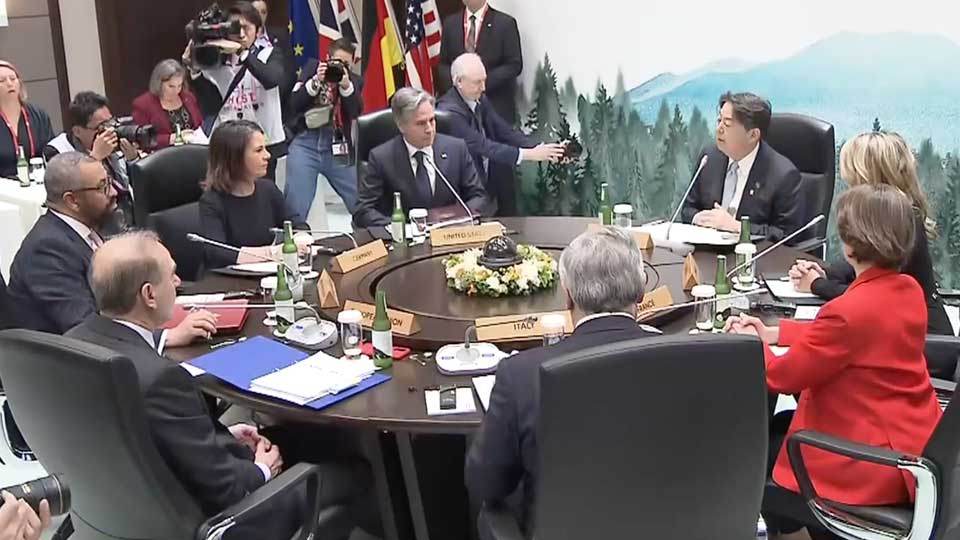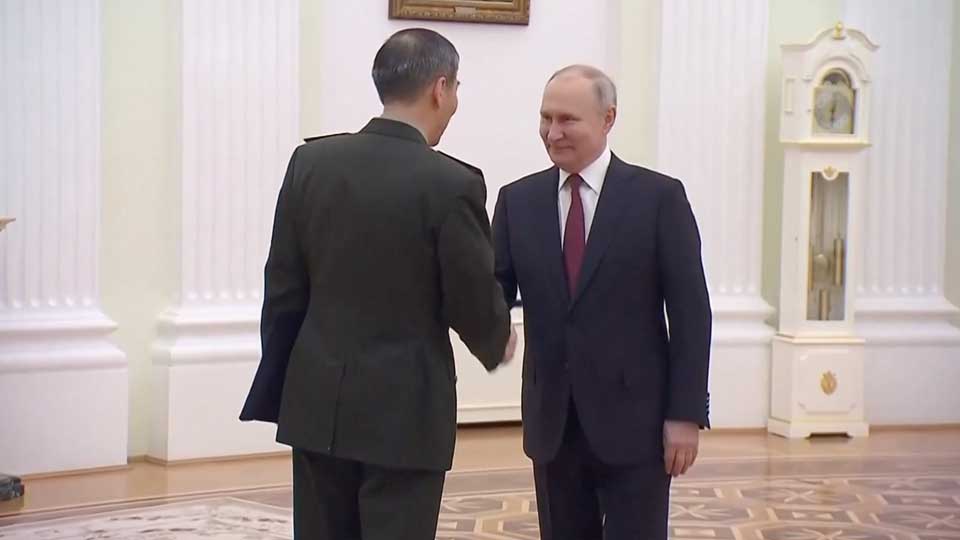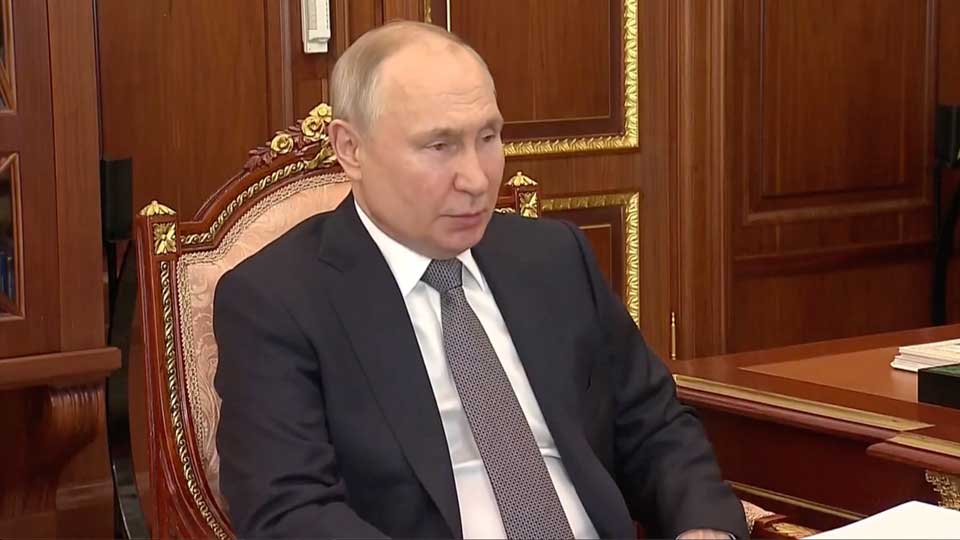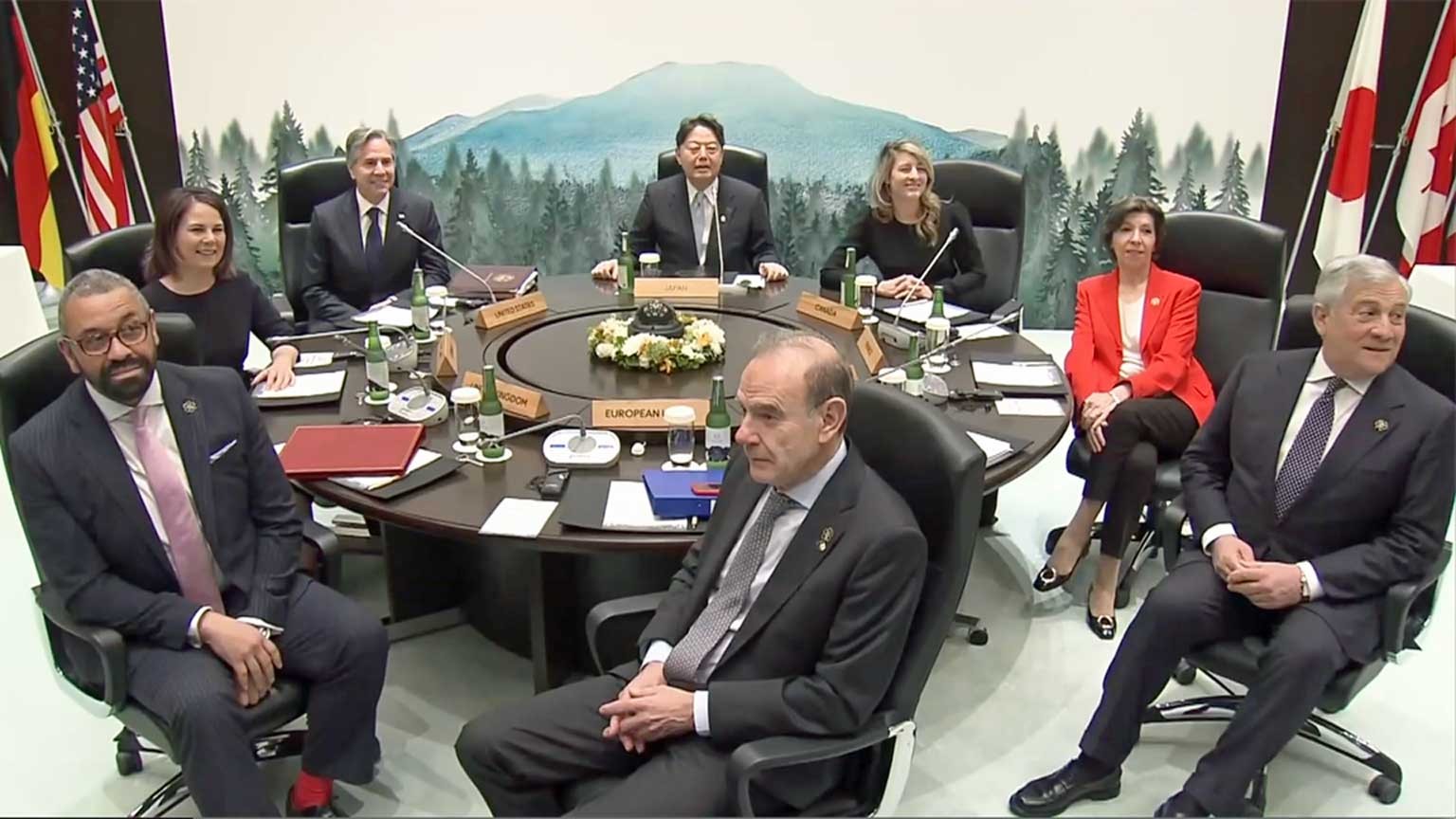The G7 foreign ministers wrapped up a three-day meeting in the central Japanese town of Karuizawa, Nagano Prefecture on Tuesday morning.
The statement condemns Russia and calls for the immediate and unconditional withdrawal of all of its troops from Ukraine.
It also says the G7 continues to support Ukraine and calls on third-party countries to stop supplying weapons to Russia.
The statement also addresses China. It expresses serious concerns over the situations in the East China and South China seas and stresses the importance of peace and stability in the Taiwan Strait.
Japan's foreign minister Hayashi Yoshimasa told reporters the ministers confirmed for the first time in document form that the G7 would oppose any attempt to unilaterally change the status quo anywhere in the world.
"We also confirmed our involvement in a free and open international order based on the rule of law, which Japan places importance on," Hayashi said.

Russia, China deepening military cooperation
Russia and China are apparently keen to demonstrate the strength of their ties to counter pressure from the United States and other nations.
Russian President Vladimir Putin met Chinese defense minister Li Shangfu in Moscow on Sunday.
Putin hailed the two countries' military cooperation. He said Russia and China regularly exchange useful information, work together in the field of military technology, and hold joint sea, land, and air exercises in the Far East and Europe.

Russia's state-run news agency reported that Li responded by saying the countries' relations "outperform the military-political unions of the Cold War era."
Russian forces fighting in Ukraine reportedly face an arms shortage, but Western countries are concerned China may decide to start supplying them with weapons.
Russia conducting military drills

The Russian military is conducting a large-scale exercise in the country's Far East, with ships and missile units scheduled to hold joint drills starting on Tuesday.
Putin praised the military, saying its Pacific fleet is capable of responding to any conflict. It's believed Russia is holding the exercises to send a strong message to the G7, which reaffirmed its support of Ukraine.
Defense Minister Sergei Shoigu said on Monday that more than 25,000 soldiers are taking part in the drills.
Tokyo: Russian drills on Japan-claimed islands 'unacceptable'
Japan's Chief Cabinet Secretary Matsuno Hirokazu has lodged a protest with Moscow over the exercises.
The Russian Defense Ministry announced one of the drills would be conducted in Japan's Northern Territories and focus on preventing an enemy landing.
Russia controls the four islands. Japan claims them. The Japanese government maintains the islands are an inherent part of Japan's territory. It says the islands were illegally occupied after World War Two.
"[The drill] runs counter to Japan's stance on these islands and is unacceptable," Matsuno said on Monday.
Spokesperson Dmitry Peskov of the Russian presidential office responded later in the day, saying the drill would be conducted in strict compliance with international law.
PM Kishida meets Blinken
Japanese Prime Minister Kishida Fumio met with US Secretary of State Antony Blinken in Tokyo following the foreign minister talks.
Kishida thanked Blinken for taking part in the meeting and said Japan and the US are determined to maintain the global order based on the rule of law.
Blinken praised the meeting's agenda and said he and his counterparts discussed a range of issues, including climate change, energy security and Russia's invasion of Ukraine.
